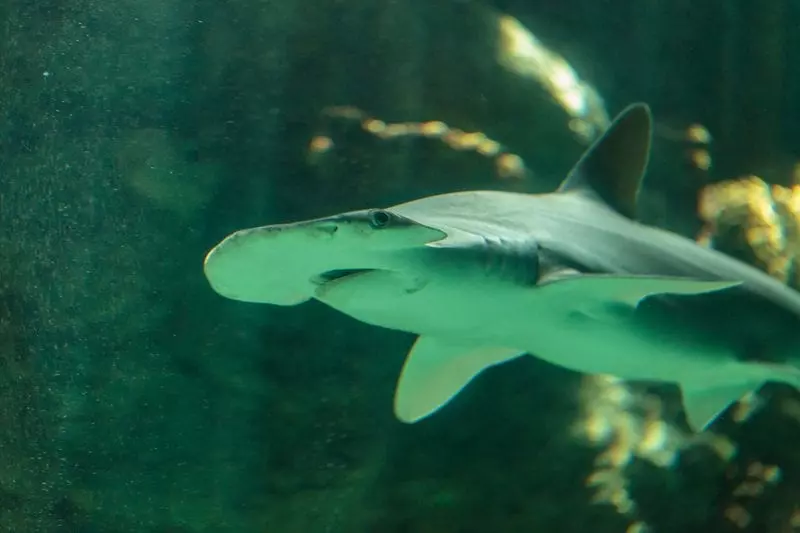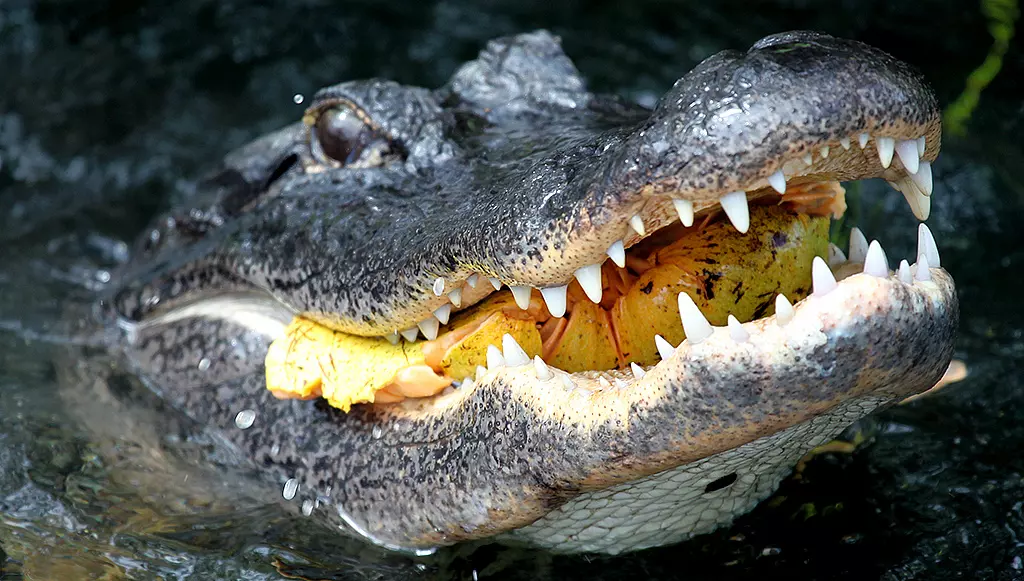[Originally published as Are All Animals Really Omnivores?]
I was teaching one of my online biology courses yesterday and discussed something virtually every biology student learns: classifying organisms as producers (who make their own food), consumers (who eat other organisms for food), or decomposers (who decompose dead organisms for food). I then mentioned that consumers can be further classified as herbivores (eating only plants), carnivores (eating only animals), or omnivores (eating both plants and animals). I then asked the students how they would classify an alligator. Of course, they classified alligators as carnivores. I then showed them the picture above. That alligator is eating a fruit (a pond apple) on purpose.
It has long been known that alligators and crocodiles ingest plant material, but it was originally thought to be accidental. Perhaps the alligator was biting for a fish, missed, and took in some plant material that was floating in the water. However, recent research shows that in most species, the ingestion is probably not by accident. It is a part of the dietary strategy.
After class, I was looking at the scientific literature and ran across an incredible report about a similar phenomenon in bonnethead sharks. Once again, it has been well known that these sharks ingest seagrass, but it was thought to be accidental. Furthermore, since a carnivore’s digestive system is tuned towards breaking down meat, it was thought that the sharks gained no nutrition from the accidentally-ingested grass. We now know that this is definitely not the case.
The authors of the study fed bonnethead sharks a diet that was mostly seagrass with just a bit of squid. The seagrass had been labeled with a specific isotope of carbon (carbon-13), which makes up only about 1% of naturally-occurring carbon. This allowed the them to identify the chemicals from the seagrass and figure out what happened to them after the seagrass had passed through the sharks. They found that the sharks were actually digesting the seagrass and using it for nutrition. In fact, even though their diet was 90% seagrass, the sharks gained weight! Finally, the authors found that the sharks’ digestive tracts showed the activity of enzymes which are designed to break down plant matter. They write:
We show that a coastal shark is digesting seagrass with at least moderate efficiency, which has ecological implications due to the stabilizing role of omnivory and nutrient transport within fragile seagrass ecosystems.
If sharks and alligators can eat and digest plant matter, probably all animals we think of as carnivores are at least capable of eating and digesting plant material. Combine that with the fact that animals thought to be strict herbivores have been found deliberately eating other animals, and we come to the strong possibility that all animals are really omnivores.
Of course, one “take home” message from all this is that creation is marvelously complex, and our attempts to categorize it are incomplete, at best. However, it also has implications when it comes to the issue of origins. Most young-earth creationists (including myself) think that before the Fall, all animals were herbivores. We also believe in a global Flood, where Noah and his family had to care for different kinds of animals on the ark for a bit more than a year. Some of those animals were carnivores, but they could not have been fed other animals (except perhaps some sea creatures from time to time). Creationists critics often say both situations are impossible, because some carnivores must eat meat, or they will die.
If a species of shark can gain weight on a diet of mostly plants, it is at least conceivable that prior to the Fall and for a year on the ark, the animals that gave rise to the “carnivores” we see today could have lived on a diet of only plants.






